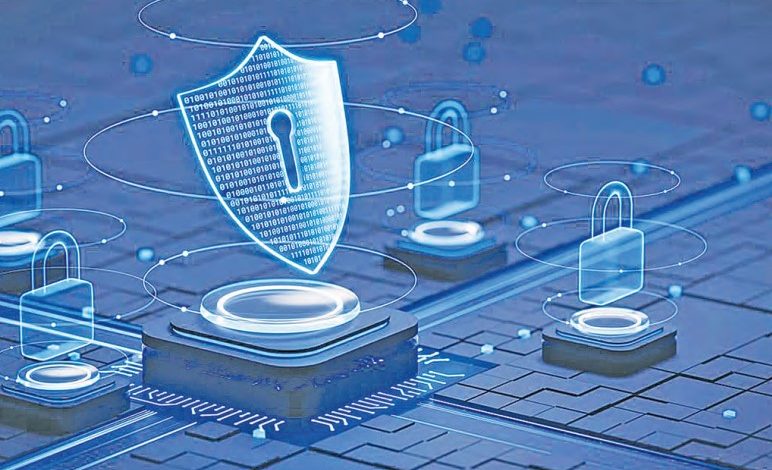How cybersecurity can enhance confidence in digital systems

IN today’s digital age, cyber threats are growing in both scale and sophistication.
Businesses, governments and individuals around the world are under constant attack by cybercriminals using advanced techniques to compromise sensitive information and disrupt operations.
As Tanzania accelerates its digital transformation by embracing information and communication technologies (ICT) in government services, finance, education and health, one critical factor underpins the success of innovations in mobile money, e-health, online government services and digital education: Trust. Cybersecurity plays a central role in ensuring this trust.
Without adequate protection of systems, networks and data, citizens and businesses may be reluctant to use digital services.
In this issue, we explore how cybersecurity acts as the silent guardian of trust in ICT systems—and how Tanzania can learn from both African neighbours and global leaders. Cybersecurity might sound technical, but its impact is very personal.
Have you ever received a suspicious SMS asking for your mobile money PIN? Are you worried someone might steal your health or tax records online? Are you afraid to use government platforms for fear of being scammed? These are cybersecurity issues.
Without strong protections, people will avoid digital services— even when they are convenient and time-saving.
Let’s look at everyday examples on how cybersecurity builds trust.
More than 60 per cent of Tanzanians use mobile money platforms like M-Pesa, Mixx by Yas, Airtel Money, Halopesa and T-Pesa. Imagine you are using a mobile money service and suddenly find out that your account has been emptied due to a cyberattack.
Or consider a farmer who uses a mobile agricultural advisory app, only to find it hacked and giving false information. Such incidents, real or perceived, can erode public confidence in digital services.
Cybersecurity tools like PIN encryption, MultiFactor (MFA) or Two Factor Authentication (2FA),SIM swap detection and transaction monitoring help protect users from fraud by ensuring that mobile wallets are encrypted and protected from SIM swap fraud, phishing, or insider threats.
Adoption of real-time fraud detection systems and encrypted SIM cards helps to maintain user trust, leading to massive adoption even in rural areas.
Technologies such as Artificial Intelligence can be used to ehnance detection of suspicious activities in real time, maintaining high public confidence in mobile money.
Artificial intelligence (AI) has the ability to learn from data, recognise patterns and predict outcomes.
In cybersecurity, AI can identify unusual behaviour, detect anomalies in network traffic and adapt to new threats more efficiently than traditional methods.
By automating many aspects of cybersecurity, AI reduces the burden on human IT teams while ensuring a more proactive approach to cyber defense.
As hospitals digitise records, protecting patient privacy by ensuring that only authorised access to health data is crucial.
A cyber-secure health system ensures that personal health data is only accessible by authorised personnel and cannot be leaked or altered.
Tanzanians need to feel confident that their medical history is not vulnerable to leaks or manipulation.
New technologies such as blockchain can be used to log who accessed health data—ensuring every click is recorded and traceable enhancing transparency and data integrity.
Tanzania’s e-government platforms are doing a great job to provide critical services. If citizens fear that their National ID or tax data might be leaked or misused, they’ll avoid using these services.
Proper cybersecurity policies, including regular security audits and incident response teams, are necessary to build public confidence.
It therefore follows that these systems should never be allowed to get hacked or go offline to enhance public trust.
These platforms should include end-to-end encryption, secure protocols and regular cybersecurity drills to protect citizen data and foster adoption across public services.
To build digital trust and increase public confidence in Tanzania a number of policy actions have been taken including drafting a National Cybersecurity Strategy and implementation and enforcement of data protection laws. Clear laws reassure citizens that their data is respected.
Despite progress, Tanzania still face low cybersecurity awareness in especially in rural communities, shortage of trained cyber professionals and weak protection of digital infrastructure.
We need to invest in local training programmes, cybersecurity innovation hubs, incentivising private sector compliance, stronger public-private partnerships and transparent reporting on cyber incidents.
There is still room for improvement in terms of launching digital safety awareness campaigns for the public and supporting national Cybersecurity Incident Response Teams (CIRTs).
Educating users about safe digital behavior reduces human error, a leading cause of breaches.
CIRT teams help to detect and respond to cyberattacks quickly, minimising damage.
Private sector needs to be more engaged in co-developing cybersecurity standards.
Banks, telecoms and startups should collaborate to set unified cybersecurity standards.
We also need to benchmark and learn from other countries that have success stories.
Learning from best practices, can help Tanzania fast-track progress.
In Tanzania’s digital future, cybersecurity is no longer a “tech issue” or not “not just an IT issue “— it’s a public trust issue.
When people believe that their information is safe, they are more likely to embrace digital tools that can in turn transform education, health, farming and government services.
By adopting robust cybersecurity practices, Tanzania can ensure that citizens, businesses and investors confidently use digital platforms.
From mobile money to e-government, from e-health to education portals, a secure ICT environment is the foundation for digital trust and long-term national development.
Trust is not built by technology alone; it is fostered through security, privacy, transparency and accountability — all pillars of cybersecurity.
Let’s secure Tanzania’s digital future — not just with code, but with confidence.
In conclusion, cybersecurity is the cornerstone of Tanzania’s digital transformation.
By investing in robust cybersecurity measures, promoting digital literacy and fostering collaboration among stakeholders, Tanzania can build a secure and thriving digital economy that benefits all citizens.
By working with local cybersecurity providers like Amtec Consulting and investing in AI, Tanzanian businesses can stay ahead of cybercriminals, safeguard their digital assets and ensure the safety and privacy of their customers.
The government is actively working on establishing trust infrastructure, including regulations and cybersecurity measures, to create a safe environment for individuals and businesses to engage in digital activities.
Initiatives like the Personal Data Protection Commission (PDPC) and the Digital Economy Strategy Framework aim to foster trust and encourage participation in the digital sphere.
However, addressing the challenges of the digital divide, digital literacy, cybersecurity threats and outdated infrastructure is crucial for fostering widespread trust and ensuring the successful realisation of the country’s digital economy goals.





